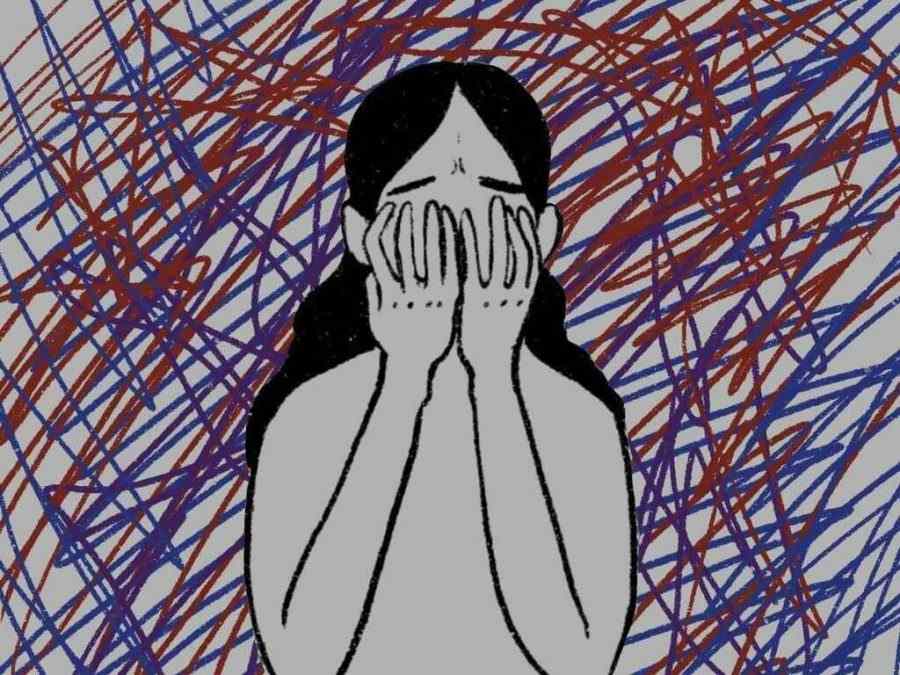OCD, or obsessive-compulsive disorder, is a mental health condition that can cause a lot of distress in someone’s life. People with OCD often have intrusive thoughts and compulsive behaviors that they cannot control. This blog post will explore the causes of OCD and some treatment options that are available. If you are struggling with OCD, please know that you are not alone and there is help available!
How OCD is ruining my life?

OCD is a debilitating anxiety disorder that can take over your life.OCD is a condition where a person experiences obsessions or recurrent and persistent thoughts that are intrusive and unwanted. These thoughts can be about anything, but they often center around themes of cleanliness, perfectionism, orderliness, and fear of harm. The obsessions can be so consuming that they take up hours of the day and prevent the sufferer from living a normal life.
For people with OCD, obsessions can be extremely distressing and cause a great deal of anxiety. The anxiety leads to compulsions, which are repetitive behaviors or mental acts that the person feels they must do to relieve the anxiety. The compulsions are often aimed at preventing the feared event from happening, or making things “just right.”
There are some things where Ocd Is Impacting Your life. They are as follows:
Problems with school or work
If you’re struggling with OCD, it can be tough to concentrate on your studies or job. The constant worry and repetitive thoughts can make it hard to focus on anything else. This can lead to problems with grades or job performance.
Relationship difficulties
OCD can also cause problems in your personal relationships. The obsessions and compulsions can take up so much time and energy that you don’t have much left for your partner or spouse. If you’re always focused on your OCD, you may be less patient, more irritable, and less able to enjoy activities with your loved ones. Your relationship may suffer as a result.
Not Interested in the hobby once you enjoyed
When you have OCD, you may start to lose interest in the things you used to enjoy. This is because your obsessions and compulsions take up so much of your time and energy. You may find that you don’t have the same hobbies or interests as you used to.
Health may be affected
Another way that OCD can ruin your life is by affecting your physical health. The stress of OCD can lead to headaches, stomach problems, and insomnia. OCD can also make existing health problems worse. For example, if you have asthma, the anxiety of OCD may trigger an asthma attack.
OCD can be a very debilitating disorder, but there is hope. With treatment, you can learn to manage your obsessions and compulsions and live a full and productive life. If you or someone you know is struggling with OCD, please seek professional help.
Causes of OCD

There are various causes of OCD. They are as follows:
Genetic
There is a strong correlation between OCD and family history. If someone in your family has OCD, you are more likely to develop the disorder yourself. This suggests that there may be a genetic component to OCD.
Biochemical
Some researchers believe that imbalances in certain brain chemicals may contribute to OCD. These chemicals include serotonin and dopamine.
Environmental
Certain life events or experiences can trigger OCD. For example, if you witness a traumatic event, such as a natural disaster or a violent crime, you may be more likely to develop OCD.
Stressful life events, such as the death of a loved one or a divorce, can trigger OCD. If you have a history of abuse or neglect, you may also be more likely to develop OCD.
How Can You Manage OCD?

There are no. of ways you can manage OCD. They are as follows:
Get to know your OCD
This will help you understand your thoughts and feelings better. It will also help you track the progress of your treatment. This will help you understand what OCD is and how it works. It will also help you understand the different treatment options available.
Find a support group
This can provide you with emotional support and understanding. It can also offer helpful tips and coping mechanisms from people who have gone through similar experiences.
Avoiding triggers
Once you know what your triggers are, it’s important to try and avoid them as much as possible. This can be difficult, but it’s a key part of managing OCD.
Self-care
It’s important to take care of yourself if you suffer from OCD. This means getting
- enough rest
- eating a balanced diet
- exercising regularly
- avoid alcohol and drugs
If your OCD is severe, you may need to take medication to help manage your symptoms.
Medication
There are a number of different medications that can be used to treat OCD, including antidepressants, anti-anxiety medication, and antipsychotics. For example, the antidepressant fluoxetine (Prozac) is often used to treat OCD. It works by increasing the levels of serotonin in the brain, which can help to reduce obsessions and compulsions.Always ask your doctor before considering any medicine.
In some cases, a combination of medication and therapy may be used to treat OCD.
Therapy
Cognitive behavioral therapy (CBT) is the most effective treatment for OCD. It involves working with a therapist to identify and challenge your negative thoughts and behaviors.
Exposure and response prevention (ERP) is a type of CBT that specifically focuses on exposure to your triggers and learning how to resist the urge to engage in your compulsions.
Stress management
Stress can be a big trigger for OCD. Learning how to manage stress can help reduce OCD symptoms. For instance, various techniques like cognitive behavioral therapy, yoga, and meditation can help people manage stress in a healthy way.
Find a therapist who specializes in OCD
He or she can help you understand your disorder and work with you to find the best treatment for you. you may need medication to help control your OCD symptoms. You might also need to undergo exposure and response prevention therapy, which can help you face your fears and stop your compulsions.
• Don’t try to go it alone: Many people with OCD feel ashamed or embarrassed about their disorder. But it’s important to remember that OCD is a real medical condition that can be treated. There are many people who understand what you’re going through and can offer support and guidance.
• Be patient: It can take time to find the right treatment for OCD. And even when you do find an effective treatment, it can take months or even years to see results. But don’t give up hope. With treatment, most people with OCD can improve their symptoms and live normal, productive lives.
Stick to your treatment plan
It may be difficult at times, but it is important to stick to your treatment in order to see improvement. It is always important to consult with your doctor before making any changes to your medication or therapy.
Living with OCD can be extremely difficult and frustrating. The constant intrusive thoughts and compulsions can make everyday tasks seem impossible. If you’re struggling with OCD, know that you’re not alone.
OCD can be a debilitating disorder, but there is hope for recovery. If you or someone you know is struggling with OCD, please seek professional help. With proper treatment, people with OCD can lead happy and fulfilling lives.
Conclusion
It may be concluded that OCD is ruining my life, but there are causes and treatments available that can help mitigate the symptoms and improve your quality of life. While the condition cannot be cured, with proper treatment, it is possible to live a relatively normal life. If you think you may have OCD, speak to a mental health professional for an accurate diagnosis and to develop a treatment plan. We provide effective online OCD Counseling.
For further information and suggestions, please contact Therapy Mantra. We have a team of expert therapists and psychiatrists that can help you overcome this problem. Get in touch with us right away to learn more about our services. You may also make an online therapy session or download our free Android or iOS app.


